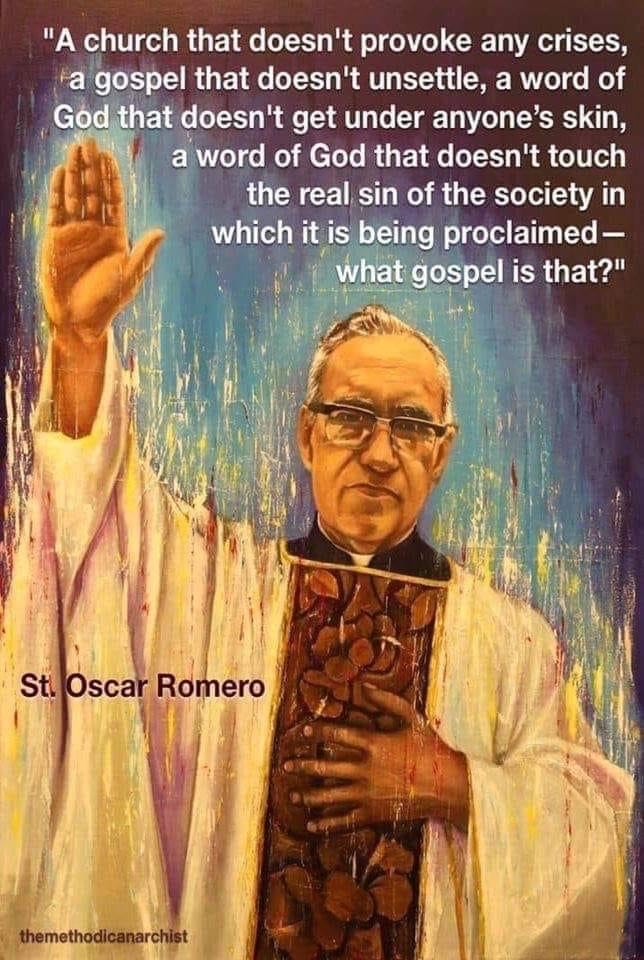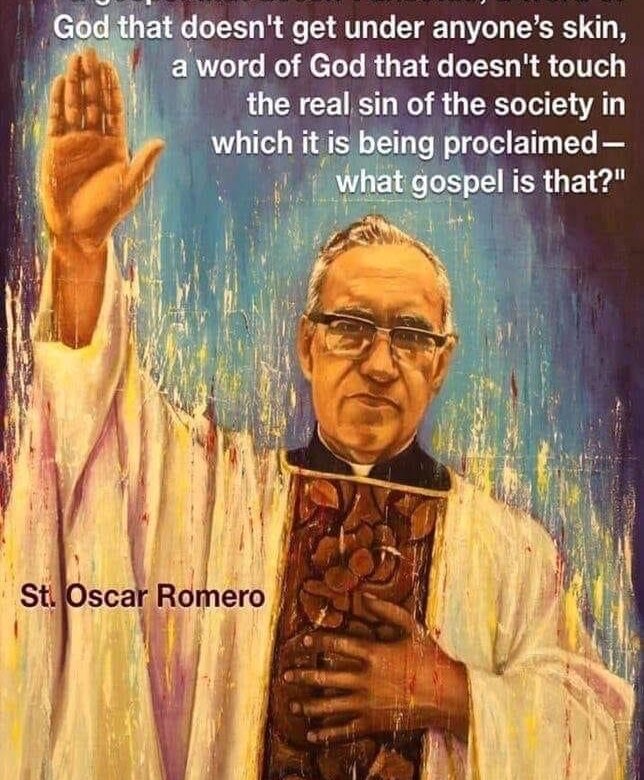My Complicated Relationship with the Catholic Church
Gerald Archibald, Edmonton
Volume 37 Issue 1, 2 & 3 | Posted: April 5, 2022

A year ago, in one of my ICN columns, I asked readers for suggested topics for future articles. Several of the responses I received were from readers who felt I should tell my story – being open, personal, and sharing how I got to be where I am (including warts and all) – especially how my story relates to faith and Christianity. They felt this sharing would be a powerful way of telling others that they are not alone.
At first, this suggestion set me back. Who wants to read such a story? Such a story could be interpreted as self-centeredness. I was reluctant to accept the challenge and as a result gradually forgot about this suggestion. Until recently – when I took a break from attending regular Sunday Mass.
Because I have been going through some gut-wrenching times regarding the Catholic Church, I reached out to a few very knowledgeable and insightful people whom I deeply respect. Here I was writing for a well respected progressive Catholic newspaper while not attending Mass regularly. They all encouraged me to keep reading, researching, writing, and sharing. They assured me that other readers may be going through the same experiences. Up to this point, I was feeling more and more hypocritical writing for ICN while going through this ‘desert or dark night of the soul’. So, in the end, I decided to share the highlights of my journey hoping that it may help readers of this column.
UPBRINGING
I was brought up in an Irish Catholic home. I went to Catholic schools all my life. The idea that I could miss Mass on a Sunday was unfathomable. While I knew we were not allowed to miss Sunday Mass (under pain of mortal-grievous sin no less), I actually looked forward to this weekly experience. I had a personal relationship with Jesus and believed what was said in the homily and what was read in the readings, were basically infallible.
I loved the Church and became a devoted altar boy. In high school, I signed up for all the retreats that were offered. Life was straightforward and simple, with God leading the way and inspiring me to live a good life through the lessons learned at Church. Basic religious rules were good and provided a guideline for me as I journeyed through high school.
During my high school years, I began thinking about the priesthood. This interest became stronger and stronger. I was attracted to the Redemptorists, a Congregation devoted both to reaching out to the most abandoned and to nurturing one’s spiritual life. So I joined the Redemptorists and spent five years with them from 1962-1966 I had no idea what I was in for!
All I knew was I wanted to be a priest and do the most good possible in the world. Congregations start their preparation of candidates in what is called ‘novitiate.’ This is a year-long retreat comprising of intense prayer, following numerous rules, and learning about the Congregation, particularly the founder St. Alphonsus. In this retreat year, I absorbed all the instruction, rules, and prayer like a sponge. The Novice Master at the time was a very stern, dominating man but a dedicated missionary. He was on the traditional side of things and, again, I soaked up all of this to the limits of my capacity.
VATICAN II
During this time Vatican II was underway but we, as novices, were not allowed to read any outside media. I lived in a bubble isolated from the real world (should I have seen a red flag?) At the end of this novitiate year, I took vows of poverty, chastity, and obedience and then ventured on to the major seminary in Windsor, Ontario.
I can remember vividly walking into the seminary while a retreat was going on led by a renowned progressive Redemptorist, Fr. Bernard Haring from Germany. It was like I landed on Mars. Where was I exactly? Was this the same Congregation I just studied about for a year?
This Father Haring was talking about things that were the opposite of what I had just enthusiastically studied and endorsed. He said such scandalous things like: Many sins of commission (what we did wrong) are not as bad on most occasions as sins of omission (things I should have done), the ‘Law of Love,’ evils of war, how we treat the needy, and that practicing love and kindness were more important than learning lofty theological concepts. I was scandalized; I was confused; I did not know one end from another.
As the months rolled by, and as the seminary allowed information on Vatican II to be read and circulated, I slowly began to see a whole new exciting world. The Church seemed to be changing. It appeared to be trying to become more relevant to people. For example, it was encouraging dialogue with other faiths; it was urging parishes to reach out to people no matter what their circumstances; it was telling us to embrace the good of the world etc. Vatican II documents were life giving and seminarians were extremely motivated in embracing its directions.
However, many of the professors at the seminary were much slower to embrace change. In fact, many were resistant to do so. Gradually there developed a schism between the authority figures and seminarians, and it became more serious as time went on. Then very rapidly, students began to leave the seminary in large numbers, many in frustration. The Congregation then appointed ‘hard-liners’ who would re-establish and exercise authority over the students eradicating their radical ideas in the process. This backfired in the extreme to the point that, in an act of desperation, the General Council in Rome closed the seminary.
The students were sent to other seminaries located all over the world (Germany, U.S., England, Ireland, Quebec, Japan etc.). I was sent to Quebec to learn both French and theology. The seminary there was reflective of a very different culture as well as progressing slowly regarding Vatican II theology. I became deeply troubled, confused, and frustrated resulting in a painful decision to forego my final vows and leave the seminary. But even during this difficult time, I somehow still had faith that Vatican II would reform the Church over the next several years.
Transitioning to corporate and lay life was not easy and at times quite rocky. But grace intervened, and after a short time, I met my life-long partner Joanne, got married a couple of years later, and together raised a wonderful family. We were very active in five parishes over the next fifty years often taking on leadership positions.
DECLINE
In the 1970s and ‘80s however, I witnessed a sudden decline in the implementation of Vatican II. It was basically ignored (some would say suppressed). Pope John Paul II issued a directive that women could never be ordained. The LGBTQ community was not welcomed as full members of the Church. Marriage of priests continued to be forbidden. In 1968 Pope Paul VI issued a decree forbidding birth control. Music became more traditional and lost relevance with the laity, the “new translation” of the liturgy was a throwback and less understandable than ever (who knows what the word ‘consubstantial’ means in our present society) etc. Popes John Paul II and Benedict XVI did not advance Vatican II, and in fact severely disciplined theologians who were advocating new theology and approaches.
Then came the many reports regarding sexual abuse in the Church. At first, I was in denial concerning these reports actively defending the Church (“If this was true, only a few priests must be guilty”). But after years of hearing and reading credible reports about these terrible abuses, I began to take them more seriously. But equally, if not more damaging to me, were the cover-ups after cover-ups displayed by the bishops involved.
These scandals and practices gradually took their toil, and my desire to go to Church began to wane. I was jealous of friends who could separate the institutional church from the spiritual. As much as I tried, I just could not make this separation. All this became too much and that was when I decided to give Church a break.
So while I am in this ‘desert’, I try to keep my faith alive by praying, meditating (primarily with Father Richard Rohr who has a daily meditation on-line that is free – it turns up everyday in my email), talking often with spirit-filled people, reading theological books and articles, conducting research for ICN columns, and so forth. A book I am reading now which is very inspiring and addresses many of my concerns is ‘Faith after Doubt’ by Brian D. McLaren. He is a former pastor and is a member of Rohr’s meditative team.
I also subscribe to La Croix International, a daily on-line newsfeed with excellent articles written by accomplished theologians. It is produced in Rome (not the Vatican). The synodal path being promoted by Pope Francis is a good start, providing the summaries of the various parishes, summaries of the dioceses, summaries by the various conferences of bishops in different countries, and the report that goes to the Vatican are not ‘sanitized’ and made so generic that nothing of substance will change. In the meantime, I for one will try to be positive and grateful yet continuing to strive for meaningful change within the Catholic Church. I do hope that I can regain my ability to see the divine in our Church, not being dragged down by all the scandals, the clericalism, and inaction that we have seen for many years now. As Thomas O’Loughlin has recently written in LaCroix International (Jan/22) – the clericalist church has lost trust in the baptized faithful by not truly listening to them and not respecting them (e.g. – cover-ups), and the laity has in large part lost trust in the ordained leaders of the Church by virtue of the many scandals, their hold on authority, and their inaction regarding Vatican II. Trust must be mutual for positive and meaningful change to take place.
The author of The Curia is the Pope (O’Loughlin Kennedy) makes a compelling case that the Church must return to its roots – small believing communities celebrating the Lord’s Supper and trusting each other in their mutual mission of being Christlike in all aspects. I too pray and hope for this return to our roots and somewhere in all this, my return to the institutional Church. I crave for the ability to see Christ’s action in the Church without becoming so completely disheartened by the irrelevance it now displays to our youth and many parts of the world.
(As always, feedback is appreciated: archibaldjerry@gmail.com
Gerald Archibald, Edmonton

